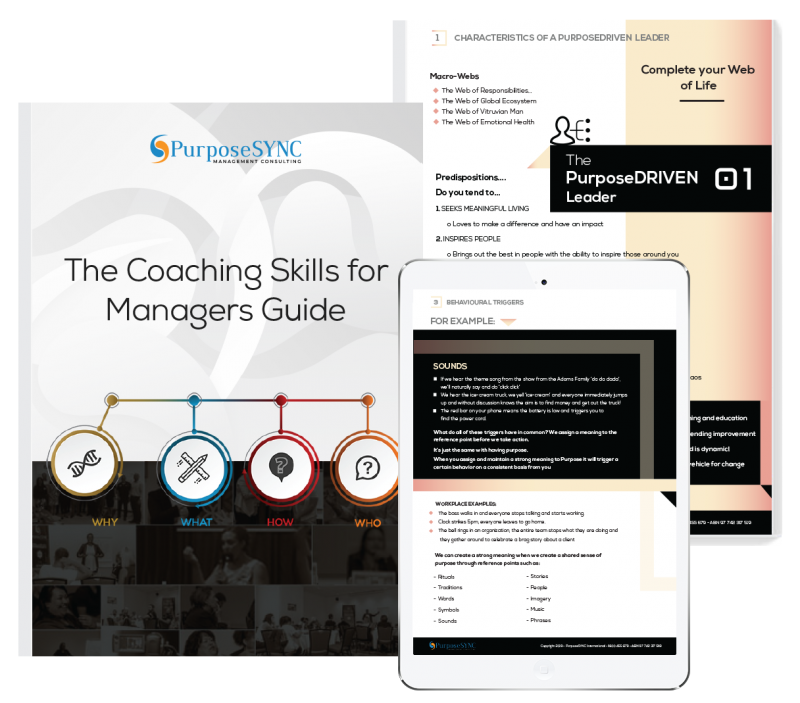In a recent Gallup study, CEO’s identified one of their biggest challenges is the reducing turnover and attrition rate of talented employees. Coaching skills for managers can reduce the billion dollars that Australian companies incur when high-performing employees disengage, become dissatisfied, and contemplate resignation.
Further losses are experienced, by the significant vacuum created when talented employees leave, taking organizational IP with them.
Why Do High Performing Employee’s Disengage?
Studies show us that high-performing employees disengage and resign due to:
- Lack of job satisfaction, meaning and sense of belonging
- Organizational closed-loop feedback, learning, and communication
- Disillusionment with smoke-screen corporate image and unethical conduct
- Power imbalances that create a win/loss, glass-ceiling environment
Coaching skills for managers is a stakeholder engagement strategy that responds to the disengagement gap of high performers, through a coaching experience that advocates learning and development to develop and retain talented leaders.
Coaching in Organisations
Through-out the world, coaching is known for creating change on multiple meta-levels, such as organisationally, socially, individually, and emotionally.
Coaching skills antecede specific capability development such as personal growth, stimulating innovation, building trust, and opening up communication channels.

Coaching Skills for Managers Guide
At its core, coaching is an advanced form of communication that provides a pathway for a deeper understanding of high performing employees – their interests, values, goals, and challenges.
The following learning and development capabilities include:
- Coaching skills for managers that builds trust with individuals and teams
- Managers who coach increase their own and their employee’s personal growth
- Investing in high performing employees is a display of responsible leadership
- Coaching provides the organization with valuable feedback for improvement
Coaching Employees as Stakeholder’s
Coaching skills for managers is a solution that aligns with responsible organizations in the quest to optimize relationships with employees as stakeholders. Stakeholder theory, first described by Dr. F. Edward Freeman, is based on the assumption that businesses can only be considered successful when they deliver value to the majority of their stakeholders.
Specifically, stakeholder theory places emphasis upon developing an awareness of stakeholders (employees) as opposed to traditional capitalist ideology, which assigns values to individuals.
This includes stakeholder analysis and stakeholder synthesizing and uses coaching to facilitate this narrative between top-level management, and high performing employees.
Organizational results include:
- Increase in talent acquisition, development, and retention
- A higher sense of self-esteem, resilience, and courage
- Increase in job satisfaction for managers and employees
- Improvement in mental and emotional health
- Greater levels of personal and organizational productivity
If an organization has a history of high levels of attrition, then I would not recommend Coaching Skills for Managers as a retention strategy. Instead, I would recommend a Stakeholder Analysis and Employee Engagement synthesis.
Communication Skills for Managers who Coach
Coaching skills gives managers advanced communication skills that open up single and closed-feedback loops, which bottleneck organizational efficiency.
Closed or single loop feedback systems stifle the capacity of high-performing employees and prevent individuals from fulfilling their potential as valued stakeholders.
Coaching skills and capabilities therefore include:
- Engaging in values-based dialogue, exchange, and awareness
- Creation of double-feedback loop systems as a bottom-up approach
- Socratic dialogue that promotes the 7 Ws of communication
- Relatability skills that establish conversations of inquiry and advocacy
- Conducting coaching sessions and the role of the manager coach
Retaining individuals who perform high on productivity KPIs requires organizations to acknowledge that high performers are not like new or average performing employees. But rather, they are stakeholders with sophisticated organizational interests relating to work-life balance, organizational ethics, leadership styles, corporate social responsibility.
An organization is comprised of the sum of all parts. Therefore ensuring that all its parts are healthy is key to ensuring organizational ecology.
Open Loops of Feedback
Organizations that take advantage of the benefits of coaching, by investing in coaching for their managers will see long term results if the organization operates with double-loop feedback, and learning structures. This is a system of processes that course corrects fundamental organizational norms, policies, and processes that act as barriers for efficiency, engagement, and organizational ethics.
Single and closed-loop feedback systems are commonly seen in top-down hierarchical structures that discourage feedback, or within toxic workplaces that place a low-value on stakeholder relationships.
An organizational coaching strategy shifts the paradigm from the value allocation of employees and rebalances the directional flow of communication. The outcome of coaching skills for managers is to foster mature and interdependent relationships with high performing employees – stakeholders who can, and desire to contribute to the betterment of an organization they care about.
To find out if coaching is suitable as an organizational stakeholder strategy then download our Coaching Skills for Managers Guide or contact Ilsé at ilse@purposesync.com

